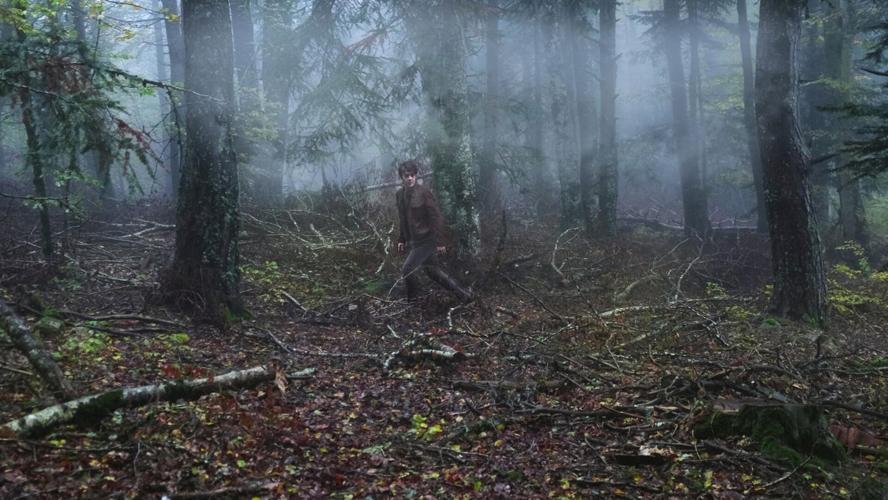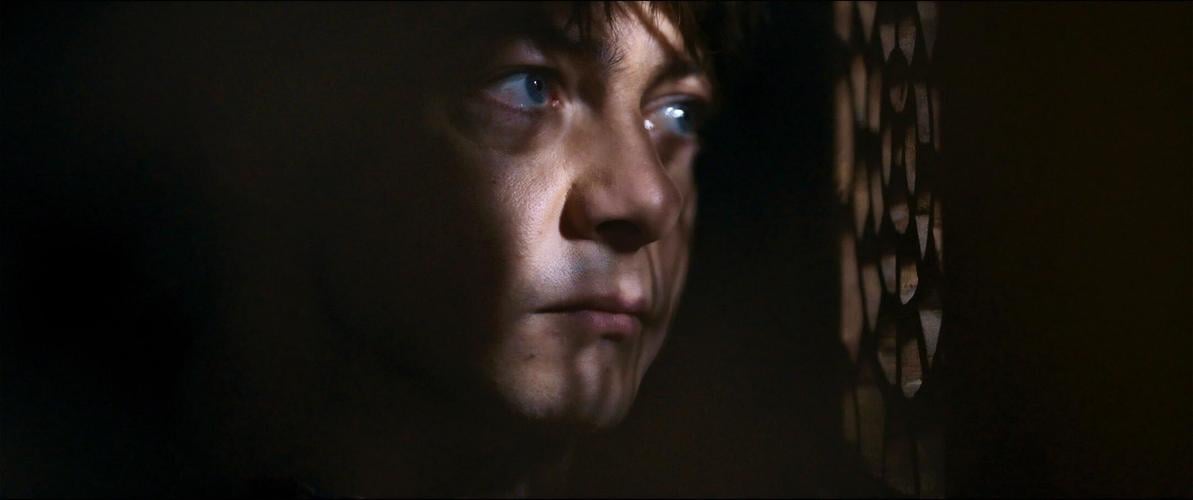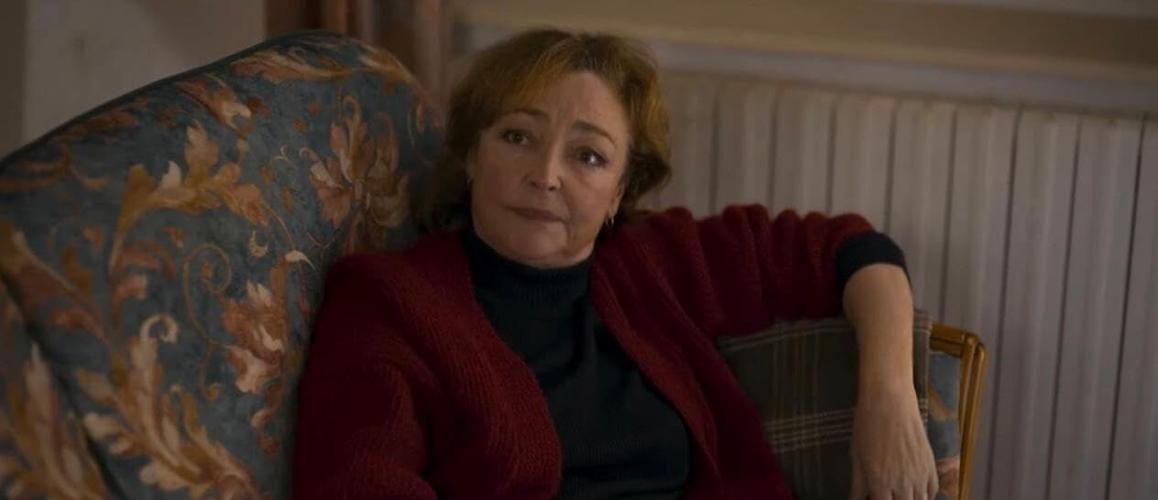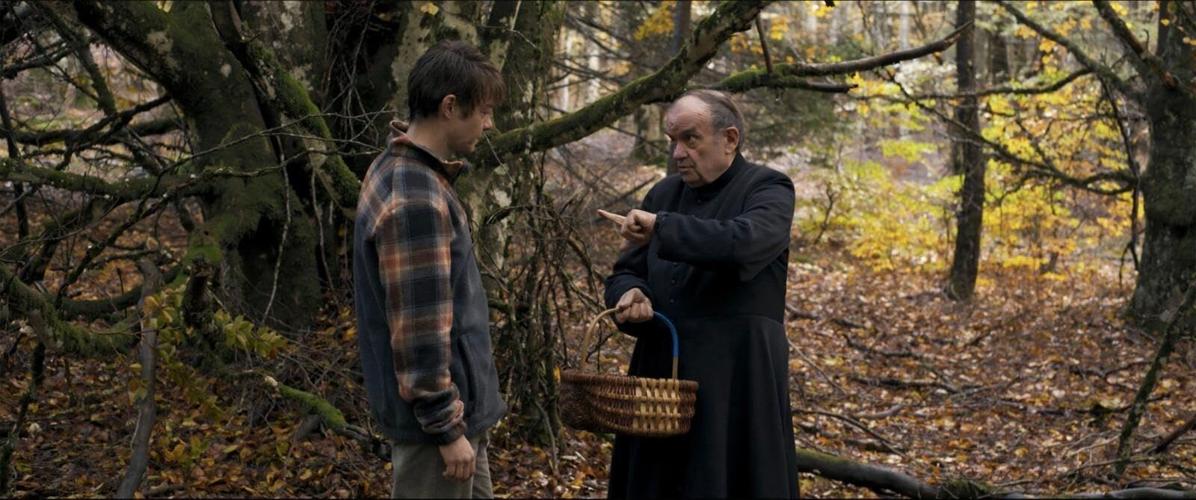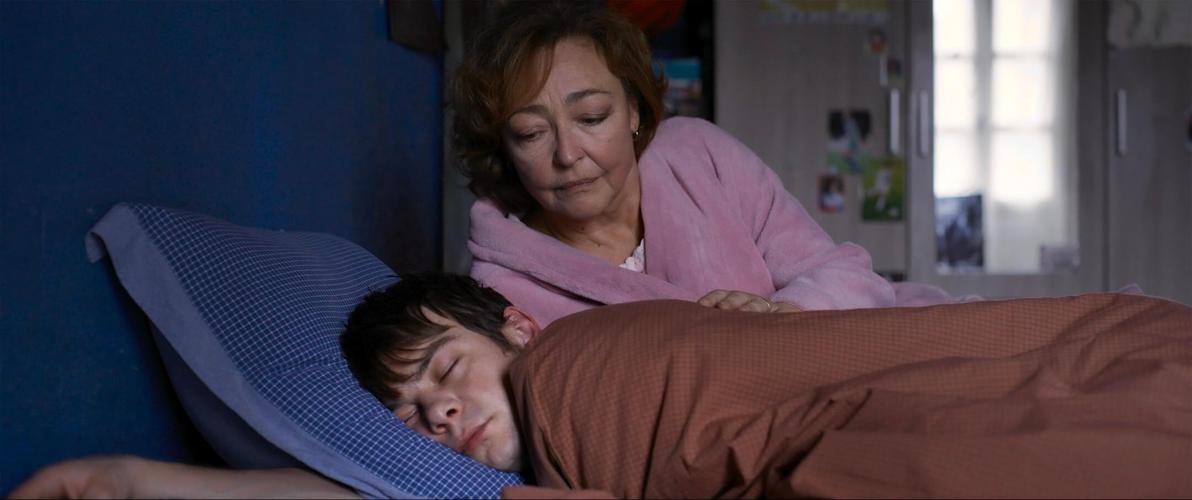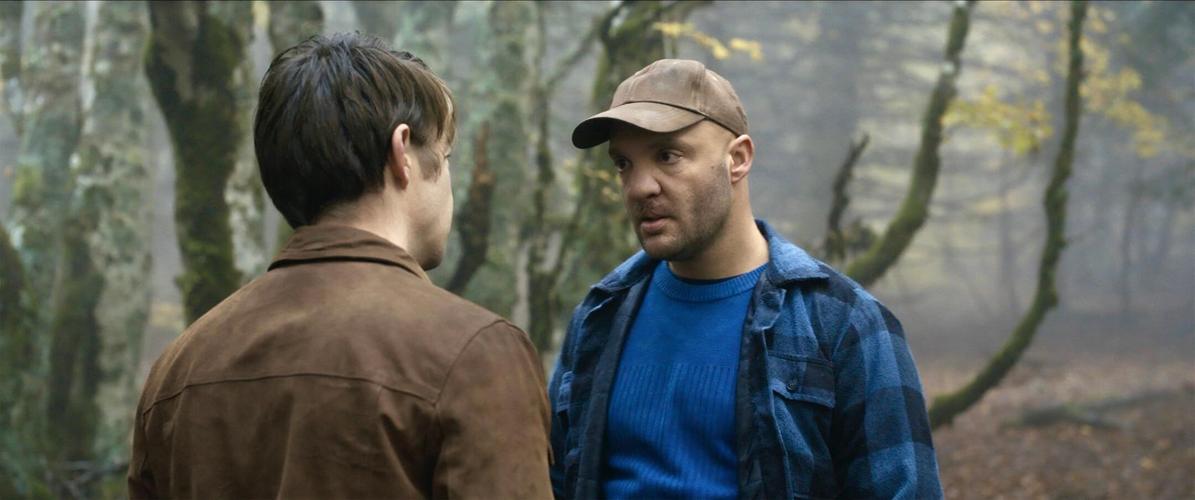Alain Guiraudie is a French filmmaker who has directed over a half-dozen features. I've only seen Stranger by the Lake (2014) and Staying Vertical (2017). I'm not familiar with his work otherwise, but Misericordia feels derivative or some kind of blending of Stranger by the Lake and Staying Vertical. It was nominated for the Queer Palm at the 77th Cannes Film Festival. It was also up for 7 César Awards, including Best Director and Best Film. It lost the César Award to Emilia Pérez (2024), the most talked-about queer film from last year. This film doesn't have the scale of that Jacques Audiard Oscar-winner, but it's probably just as insane.
At first, this film felt like a rip-off of Ofir Raul Graizer's The Cakemaker (2018), which was about a man who is a baker and how that man visits the widow of a businessman he loved, resulting in the baker having an affair with the widow. Grazier's film was ostensibly about how grief can bond people or move them in unexpected ways or in ways that might transcend certain boundaries. Guiraudie's feature here adopts the same premise essentially, but it twists that premise into knots that are again very reminiscent of his two aforementioned films. In fact, the opening of this film is practically identical to Staying Vertical, which has a man leaving his home to go to a countryside place where he will spend the rest of the narrative drifting either physically or emotionally.

Félix Kysyl stars as Jérémie, a man who works in the baking industry, likely having been employed at a bread company or pastry shop in Toulouse, which is a city in the south of France. It's assumed that he got his training or was mentored by an older man named Jean-Pierre Rigal who was the baker in a small village, located deep in the countryside between Toulouse and Millau, which is a French city said to be about four hours away by car. This is significant because like in The Cakemaker, Jean-Pierre's bakery and home are far enough away that when Jean-Pierre dies, Jérémie attends the funeral but Jean-Pierre's widow invites him to stay the night, instead of making him drive all that way back to Toulouse.
Again, like The Cakemaker, it's implied that Jérémie and Jean-Pierre were perhaps having an affair. There's another interpretation that Jérémie was simply in love with Jean-Pierre, but those feelings were unrequited. Whatever it was, it's enough for Jérémie to want to stay in this small village, live in Jean-Pierre's house, alongside the widow and take over Jean-Pierre's bakery. Taking over someone else's life or inhabiting another person's space makes this film echo plot and themes in The Talented Mr. Ripley (1999). Jérémie might in fact be a French version of Tom Ripley.

Catherine Frot (Marguerite and Haute Cuisine) co-stars as Martine Rigal, the widow in question. Unlike The Cakemaker, the widow here is old enough to be Jérémie's mother. Yet, like The Cakemaker, the implication is that she and Jérémie will also have an affair, despite Jérémie seemingly having feelings for her husband and not her. Whether it's real or not, this implication causes Martine's one and only child, Vincent Rigal, played by Jean-Baptiste Durand, to get angry and demand that Jérémie leaves. Martine says she doesn't want to grieve alone, so she insists that Jérémie stay. This makes no sense. She's not grieving alone. She has her son and daughter-in-law and others in the town. It makes no sense, unless she does want to have an affair with this younger man but never outwardly says so.
Unfortunately, things take a turn when Vincent disappears and the police begin to investigate Jérémie because he was reported by others to have been the last person to see Vincent alive. It doesn't take long for the police to suspect Jérémie of lying and in fact catch him in a lie, as well as identify a motive for Jérémie to be at odds with Vincent. That's when this film starts to share DNA with Stranger by the Lake because that film was about a man who is suspected of killing another. However, the accused man is in a community that tends to be closed off and protective of each other. It's also literally about the accused man being overtly protected by someone who knows that the man is guilty.

Jacques Develay also co-stars as Phillippe Grisolles, the reverend who runs the church in the village. He's a much older man who could be the grandfather to Jérémie. He also likes to collect mushrooms, especially a specific type called "porcini." He typically hikes through the nearby forests foraging for these mushrooms. When Jérémie is investigated, Phillippe decides to do what he can to protect him. Without being too explicit, Phillippe seems to confess to be a repressed homosexual who becomes highly infatuated with Jérémie and will do anything to keep him in the village, not in prison, but near him. Phillippe wants literally to keep Jérémie in his company whether for romantic or homo-social reasons.
In Staying Vertical, Guiraudie had a situation where we see an old man, an elderly man, in bed and in fact having sex with a much younger man. It goes beyond the kind of May-December relationship depicted in Harold and Maude (1971) and is closest to the kind of romance depicted in Gerontophilia (2015). With that dynamic between Phillippe and Jérémie, it seems as if this film will go the way of a queer May-December. Instead of the older woman, it seems as if Jérémie will go with the older man. Yet, the gerontophilia on display here becomes more a survival tactic rather than anything based on true desire. As the film progresses, Jérémie expresses interest or sexual attraction to two people. Neither of whom are Phillippe or Martine. Yet, those are the two with whom he ends up in bed. Vincent's anger stemmed from Jérémie possibly sleeping with his mom. The joke or black humor is that this is exactly what occurs, but the film never confirms if this was Jérémie's goal all along.

That is perhaps a dark gag that I could have accepted, if the film provided more insight into Martine's mind. She seems to be a grieving wife and mother, having lost both her husband and her son. She knows that Jérémie is possibly the culprit in her son's disappearance. Being with Jérémie alleviates the grief of losing her husband, but how can she look past the man who possibly killed her son? In Stranger by the Lake, the murder victim is some random person with whom the protagonist doesn't have a connection, so it's easier to cozy up to a murderer if you have no connection to his victim. In that 2014 film, things change when the murderer kills again and kills someone who is connected to the protagonist. Yet, the difference here is that Jérémie isn't a psychopath who will undoubtedly kill again. Unlike in Stranger by the Lake, Jérémie feels guilt.
There's a pivotal scene where Phillippe states the difference. Phillippe says he believes that Jérémie's guilt will likely keep him from doing anything criminal or wrong ever again. The so-called murderer in Stranger by the Lake seemingly felt absolutely no guilt and had no problem with committing crimes again and again. Arguably, Jérémie isn't that kind of person, but Phillippe's justification for Jérémie getting away with his crimes are admittedly for selfish reasons and for closeted ones that no healthy person would otherwise buy.

Not Rated but contains some violence and full-frontal nudity.
Running Time: 1 hr. and 44 mins.
Available on VOD.


